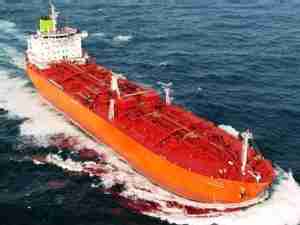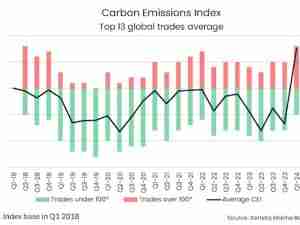Rio Tinto lifts iron ore shipments despite China risks, draws on inventory
By: Reuters | Oct 16 2015 at 10:04 AM | Maritime
SYDNEY - Rio Tinto on Friday posted a 17 percent rise in third-quarter iron ore shipments and said it was on track to meet a full-year target of 340 million tonnes, shrugging off risks from slower economic growth and peaking steel output in China.
In a sign market conditions may be improving, the miner dipped into its inventories - 4 million tonnes from its Australian operations and 1 million from the Canadian business - after production fell short of shipments.
Rio Tinto shipped 91.3 million tonnes over the quarter, outstripping production of 86.1 million tonnes, data from the company's quarterly production report showed.
"Clearly, the iron ore market is reasonably tight," said Shaw Stockbroking mining analyst Peter O'Connor in a note to clients.
At Rio Tinto's forecast shipping rate, the Anglo-Australian miner would maintain a steady ranking with Vale of Brazil, while ahead of BHP Billiton .
"Companies such as Rio Tinto are making a lot of money out of iron ore because they can produce so much, so you would expect production to keep going up," MineLife analyst Gavin Wendt said.
A global glut of ore and falling Chinese steel demand have dragged iron ore prices down sharply from a high of nearly $200 in 2011. The price is forecast to drop to $50 over the next two years, a Reuters poll showed.
Iron ore miners have been on a drive to lower their iron ore production costs to close to $10-$15 a tonne to keep ahead of the deterioration in pricing.
Nev Power, chief executive of Australian iron ore miner Fortescue Metals Group on Thursday said the market for the steel-making commodity had returned to relative balance, following the exit of some higher cost producers who found the business unprofitable.
Rio Tinto iron ore division head Andrew Harding last month forecast some 120 million tonnes of unprofitable iron ore would dry up in 2015 - 45 million in China and the rest mostly from mines in West Africa.
Iron ore stood at $53.20 per tonne on Friday, just above the $50 average over 2016 and 2017, according to a median forecast of 17 analysts polled by Reuters late last month.
Rio Tinto's iron ore production had taken a blow in the first half of the year after interruptions due to two cyclones hit near its Australian mines, forcing it to revise earlier guidance down by 10 million tonnes this year.










